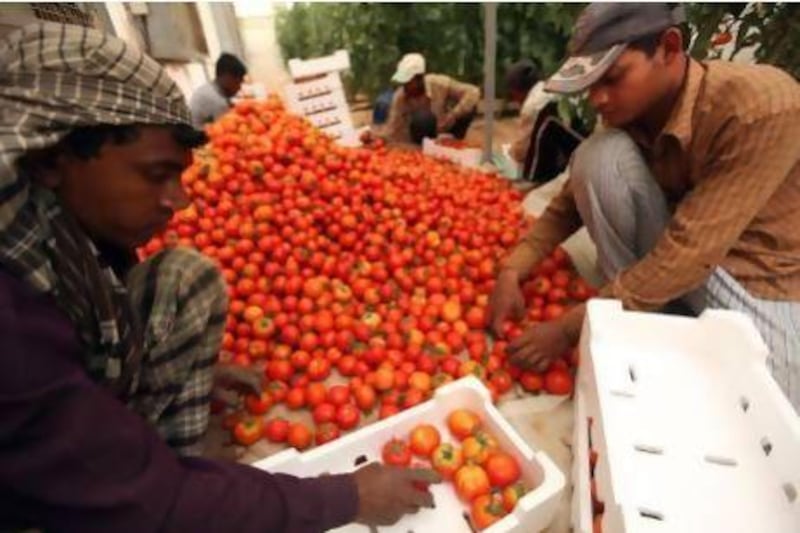ABU DHABI // The UAE will soon be able to enjoy a taste of Italy thanks to an initiative allowing farmers to produce sun-dried tomatoes.
The Farmers' Services Centre, a government body responsible for modernising Abu Dhabi farms, has teamed up with UAE University to produce the delicacies from surplus crops.
The centre will provide field expertise while the university will train staff to dry tomatoes.
"Tomatoes are usually dried in the summer but in the UAE it's between January and April," said Dr Afaf Kamal-Eldin, the chairman of food science at the university’s faculty of food and agriculture.
"It's not very hot conditions so we were trying to explore how it could work while ensuring the safety of the tomatoes."
The university's researchers tested different methods, drying the tomatoes directly in the sun and using a solar dryer.
They found solar dryers were usually quicker but did not always work well in the UAE's sometimes foggy winters.
"Solar dryers can work but they need some precautions," said Dr Kamal-Eldin. "For instance, they should not be placed in a foggy area, otherwise they must be taken indoors."
Dryers were found to be more efficient and effective, allowing tomatoes to be dried in just one day in the summer months, helping the tomatoes retain their vitamins and nutrients.
"Drying tomatoes in the sun is an option but one has to be careful of the weather," said Dr Kamal-Eldin. "It can sometimes get foggy, unlike the summer, so solar dryers were the better [option]."
The process will allow farmers to make an income from surplus tomatoes.
"In the short run, the farmers have some excess of tomatoes that they cannot sell immediately," said Dr Kamal-Eldin.
"To process them, like turning them into ketchup, you need factories but drying them is a much easier option and that way there won’t be any wastage."
The centre aims to create a niche market as it has for rabbits and pigeons, which have recently become available in supermarkets.
"Customers are asking for these products specifically, which is driving the push to bring new products like local mushrooms and sun-dried tomatoes," said Chris Hirst, the centre’s chief executive.
"Demand for high-value products such as sun-dried tomatoes, while still small, is increasing with the growth of the hotel and restaurant industry that helps to stimulate broader public demand for these products."
The centre will conduct an Arabic workshop in January about the science and craft of preparing and drying tomatoes.
"Part of our job as an organisation is to educate," said Mr Hirst.
"Of course, this applies to recommended practices, but as in cases like this, also techniques and knowledge that could identify agribusiness opportunities on farms.
"This kind of extra could lead to small-scale diversification among farms.
"Farms that in the past grew only a few different varieties of vegetables might in the future want to branch out and create their own products related to what they grow."
cmalek@thenational.ae






